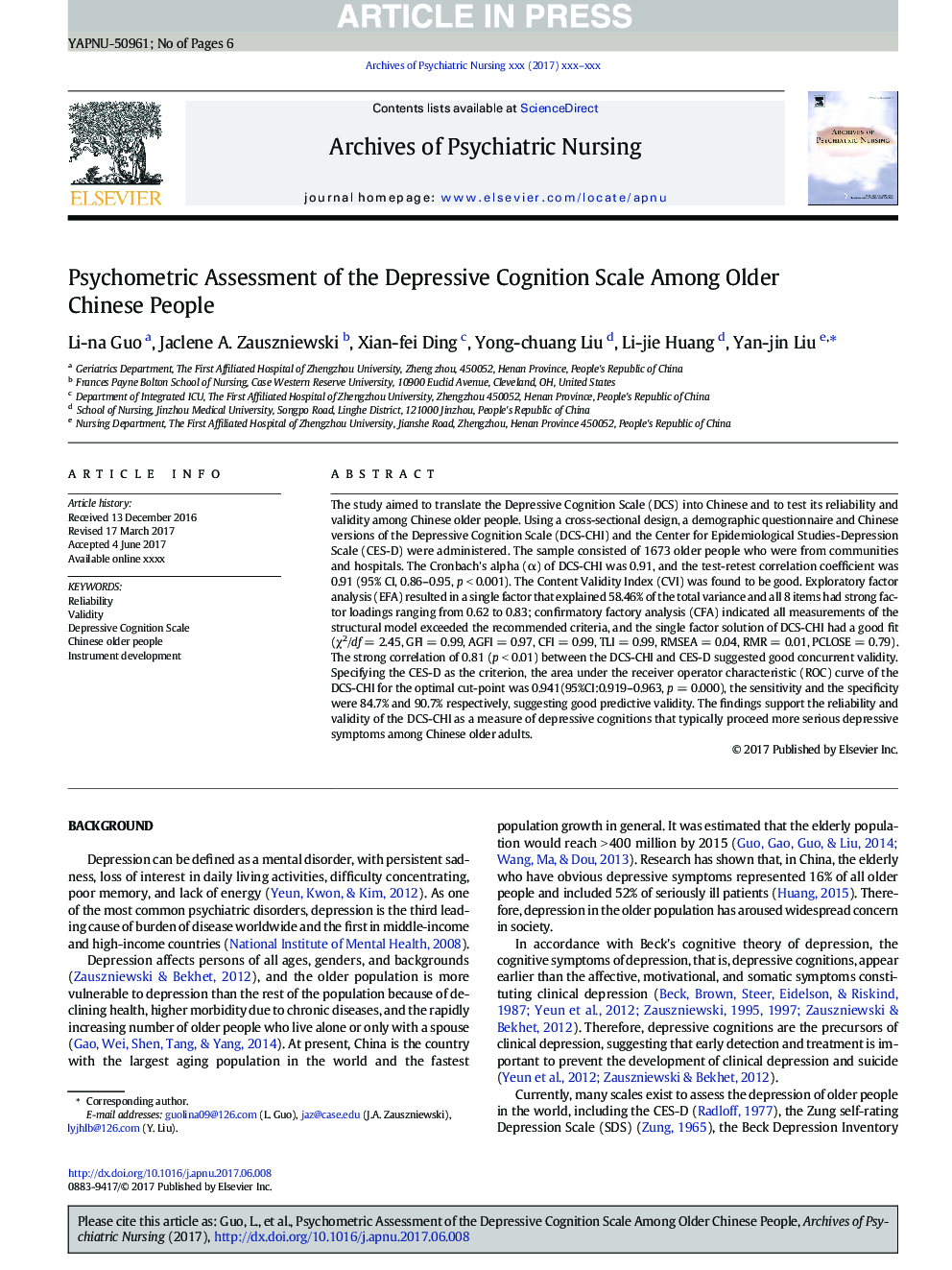| Article ID | Journal | Published Year | Pages | File Type |
|---|---|---|---|---|
| 4929561 | Archives of Psychiatric Nursing | 2017 | 6 Pages |
Abstract
The study aimed to translate the Depressive Cognition Scale (DCS) into Chinese and to test its reliability and validity among Chinese older people. Using a cross-sectional design, a demographic questionnaire and Chinese versions of the Depressive Cognition Scale (DCS-CHI) and the Center for Epidemiological Studies-Depression Scale (CES-D) were administered. The sample consisted of 1673 older people who were from communities and hospitals. The Cronbach's alpha (α) of DCS-CHI was 0.91, and the test-retest correlation coefficient was 0.91 (95% CI, 0.86-0.95, p < 0.001). The Content Validity Index (CVI) was found to be good. Exploratory factor analysis (EFA) resulted in a single factor that explained 58.46% of the total variance and all 8 items had strong factor loadings ranging from 0.62 to 0.83; confirmatory factory analysis (CFA) indicated all measurements of the structural model exceeded the recommended criteria, and the single factor solution of DCS-CHI had a good fit (Ï2/df = 2.45, GFI = 0.99, AGFI = 0.97, CFI = 0.99, TLI = 0.99, RMSEA = 0.04, RMR = 0.01, PCLOSE = 0.79). The strong correlation of 0.81 (p < 0.01) between the DCS-CHI and CES-D suggested good concurrent validity. Specifying the CES-D as the criterion, the area under the receiver operator characteristic (ROC) curve of the DCS-CHI for the optimal cut-point was 0.941(95%CI:0.919-0.963, p = 0.000), the sensitivity and the specificity were 84.7% and 90.7% respectively, suggesting good predictive validity. The findings support the reliability and validity of the DCS-CHI as a measure of depressive cognitions that typically proceed more serious depressive symptoms among Chinese older adults.
Related Topics
Health Sciences
Medicine and Dentistry
Psychiatry and Mental Health
Authors
Li-na Guo, Jaclene A. Zauszniewski, Xian-fei Ding, Yong-chuang Liu, Li-jie Huang, Yan-jin Liu,
